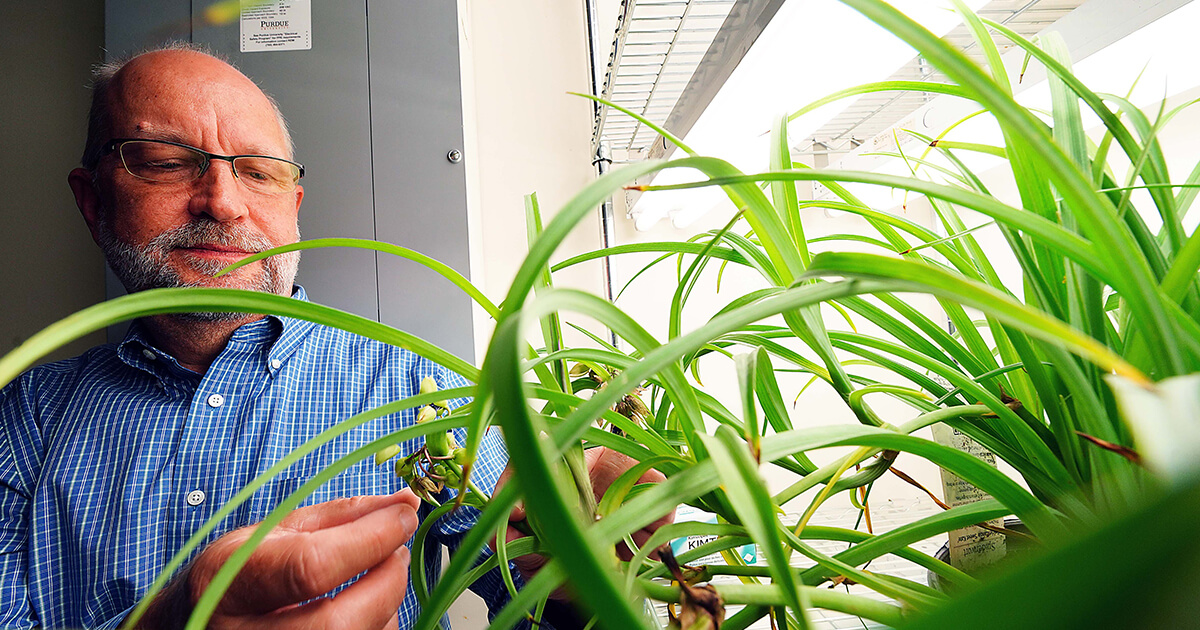
A
fter decades in pursuit of plant cellular signaling, a researcher returns to questions raised by his early work — now equipped with advanced technology and the establishment of a $12.5 million institute.
In 1998, a Purdue University study challenged conventional thoughts about what triggered a plant’s response to infection and helped open the door to a new era of chemical signaling research. Now a scientist involved in that collaborative study hopes to answer the very questions his early research raised through a new National Science Foundation–Biological Integration Institute program.
The institute, named “Emergent Mechanisms in Biology of Robustness, Integration and Organization” or EMBRIO, is led by Purdue researchers and spans the colleges of engineering, agriculture and science.